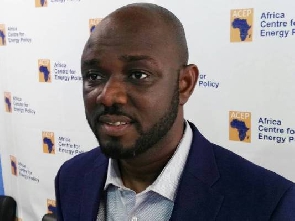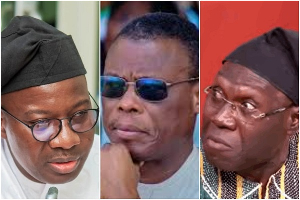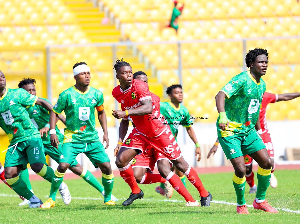The African Center for Energy Policy (ACEP) had said that the efforts of the Public Interest and Accountability Committee (PIAC) in the judicious use of revenue obtained from Ghana’s natural resources can be undermined by partisan politics.
This is due to the nature of appointment of its members, sources of financing for its annual programmes, and the Minister of Finance's discretion to determine the allowances paid to members of the Accountability Committee.
In a report titled “Evaluation of the Mandate, Performance & Practices of PIAC”, ACEP said: “because PIAC remains such a critical quasi-state institution with a key role in the nation’s quest to ensure transparency and accountability for the public’s interest in the use of petroleum revenues, all measures must be put in place to ensure it becomes efficient, responsive, and true to its functions.”
This, it said, demands on the efforts of civil society groups and think tanks, governments, and Ghanaians to help the committee succeed in discharging its much needed mandate, effectively and independently.
Other recommendations it made were that, PIAC must have an internal auditor to control and mitigate the risk of financial infractions, adding the Accountability Committee must also be intentional about communicating its financial resources, management practices and financial reports with the general public annually, through publication on its website and in the dailies. This it said will boost public trust in, and support for PIAC.
Secondly, the Committee must be more accountable to its constituent groups, and by extension, the people of Ghana.
“They [PIAC] are accountable to Parliament who represents the people, but the danger is that the ordinary people are left out”, one donor remarked.
It added that the committee must also consult extensively to boost the rigor of its analysis.
According to the report, PIAC ought to strategise properly and prioritise its activities to make its needs suit its resources. That is, notwithstanding the late disbursement of funds (usually done during the second half of the year), PIAC could plan and execute those high-impact activities that require huge expenditures in the second half of the year in order to fully and effectively utilize funds.
The report further recommends that specific timelines for Annual Budgeting Funding Amount disbursement in the Petroleum Revenue Management Act regulations (which is still in progress) be quickened in order to solve the challenge of late disbursements by the Ministry of Finance so as to comply with the budget allocations, and thereby release funds on time to the Committee.
The report further demands that the regulations compel the Minister of Finance to ensure that the Bank of Ghana pays amounts due PIAC from the ABFA no later than three working days after receipt of petroleum revenues into the Petroleum Holding Fund.
Achievements
According to the report, stakeholders interviewed in the report, praised PIAC for certain improvements.
One of which is the fact that PIAC has improved upon its sense of independence. The certainty of funding from ABFA, and non-reliance on the Ministry of Finance for budgetary approval has emboldened PIAC to achieve its objectives. “PIAC has become more confident and more aggressive about what they look out for”, a Donor stated.
Another major improvement is that PIAC has expanded the scope of its reach.
According to stakeholders, ABFA has created room for PIAC to do other things on its own compared to work plans determined by donor funds.
Challenges
The challenges facing PIAC can be categorised into both internal and external challenges.
Internally, PIAC has not fared too well. It was involved in some procurement infractions in 2016, which has since been rectified.
Again, its quarterly reports are always released late.
Additionally, PIAC is in a conflict of interest position where it plays oversight of the very funds it benefits from. The risk that PIAC might not perform this function with equal measure as it does with other institutions is high.
PIAC performs its functions through a 13-member composition drawn from nominated representatives of non-governmental constituent groups, who are then appointed and sworn-in by the Minister of Finance, in the same manner as government appointees.
Business News of Friday, 24 January 2020
Source: www.classfmonline.com
Report: ACEP worried PIAC’s work can be politically influenced
Entertainment












